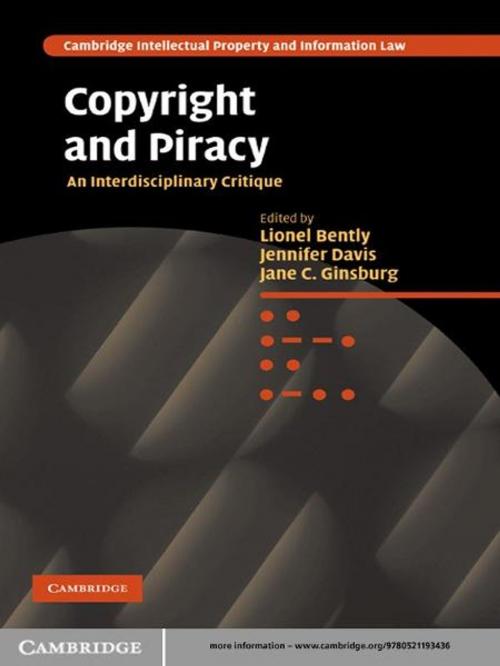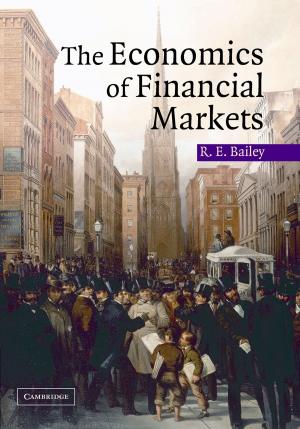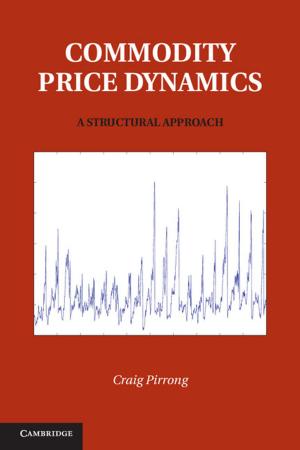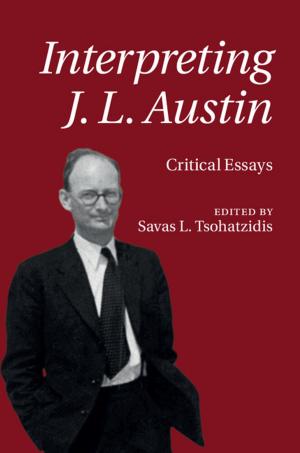Copyright and Piracy
An Interdisciplinary Critique
Nonfiction, Reference & Language, Law, Patent, Trademark, & Copyright, Intellectual Property| Author: | ISBN: | 9780511851292 | |
| Publisher: | Cambridge University Press | Publication: | October 28, 2010 |
| Imprint: | Cambridge University Press | Language: | English |
| Author: | |
| ISBN: | 9780511851292 |
| Publisher: | Cambridge University Press |
| Publication: | October 28, 2010 |
| Imprint: | Cambridge University Press |
| Language: | English |
An understanding of the changing nature of the law and practice of copyright infringement is a task too big for lawyers alone; it requires additional inputs from economists, historians, technologists, sociologists, cultural theorists and criminologists. Where is the boundary to be drawn between illegal imitation and legal inspiration? Would the answer be different for creators, artists and experts from different disciplines or fields? How have concepts of copyright infringement altered over time and how do such changes relate, if at all, to the cultural norms operating amongst creators in different fields? With such an approach, one might perhaps begin to address the vital and overarching question of whether strong copyright laws, rigorously enforced, impede rather than promote creativity. And what can be done to avoid any such adverse consequences, while maintaining the effectiveness of copyright as an incentive-mechanism for those who need it?
An understanding of the changing nature of the law and practice of copyright infringement is a task too big for lawyers alone; it requires additional inputs from economists, historians, technologists, sociologists, cultural theorists and criminologists. Where is the boundary to be drawn between illegal imitation and legal inspiration? Would the answer be different for creators, artists and experts from different disciplines or fields? How have concepts of copyright infringement altered over time and how do such changes relate, if at all, to the cultural norms operating amongst creators in different fields? With such an approach, one might perhaps begin to address the vital and overarching question of whether strong copyright laws, rigorously enforced, impede rather than promote creativity. And what can be done to avoid any such adverse consequences, while maintaining the effectiveness of copyright as an incentive-mechanism for those who need it?















